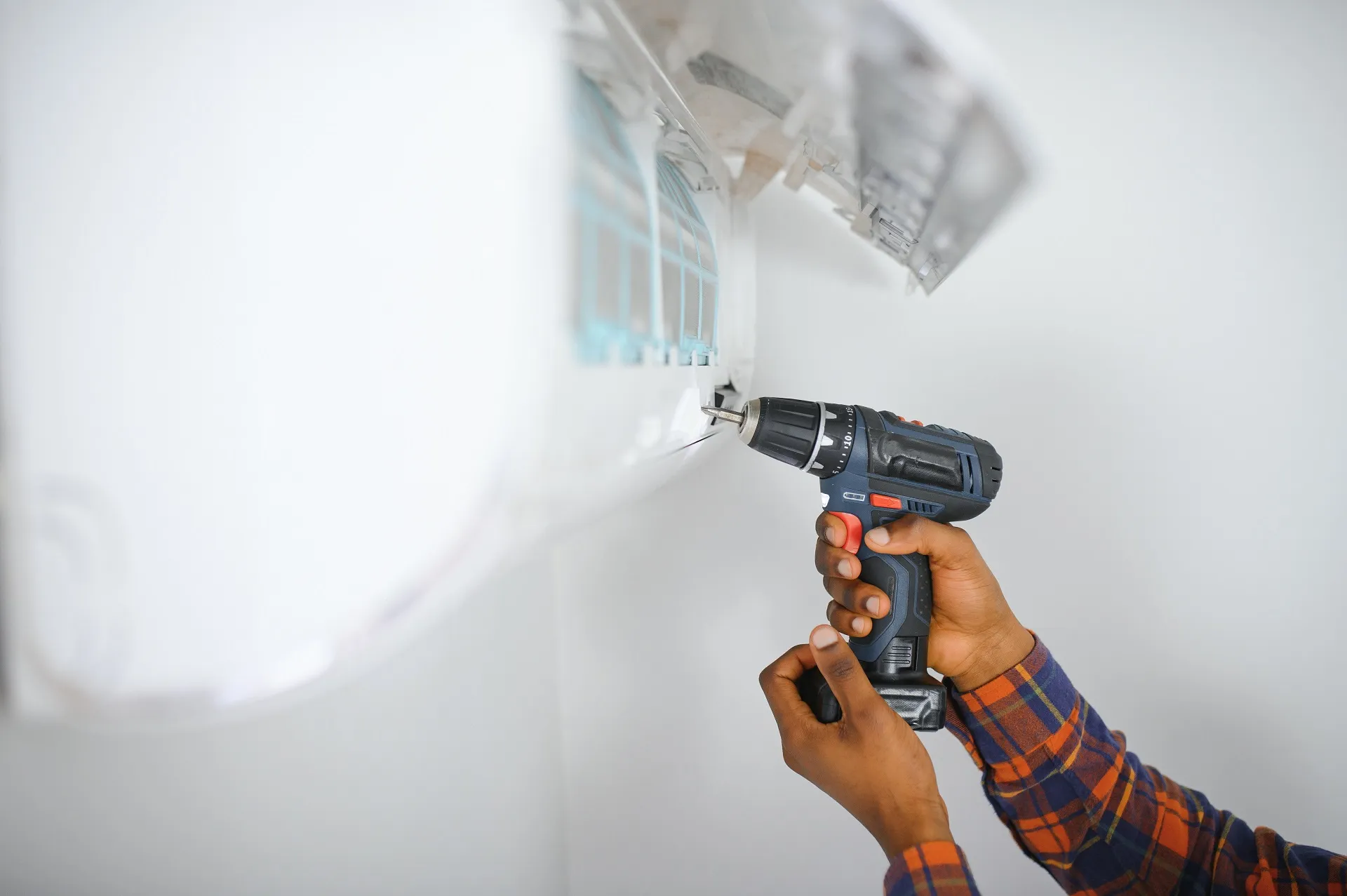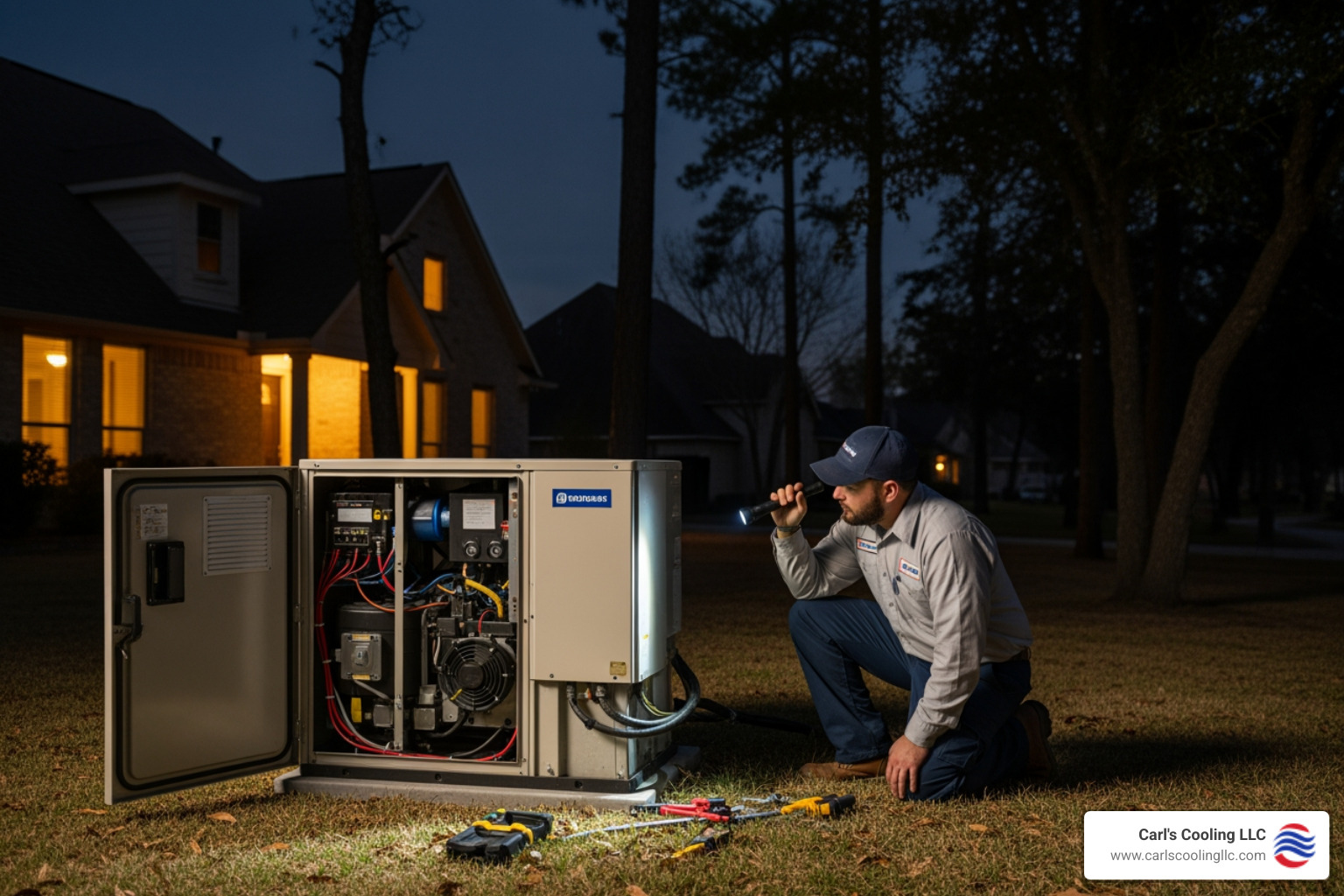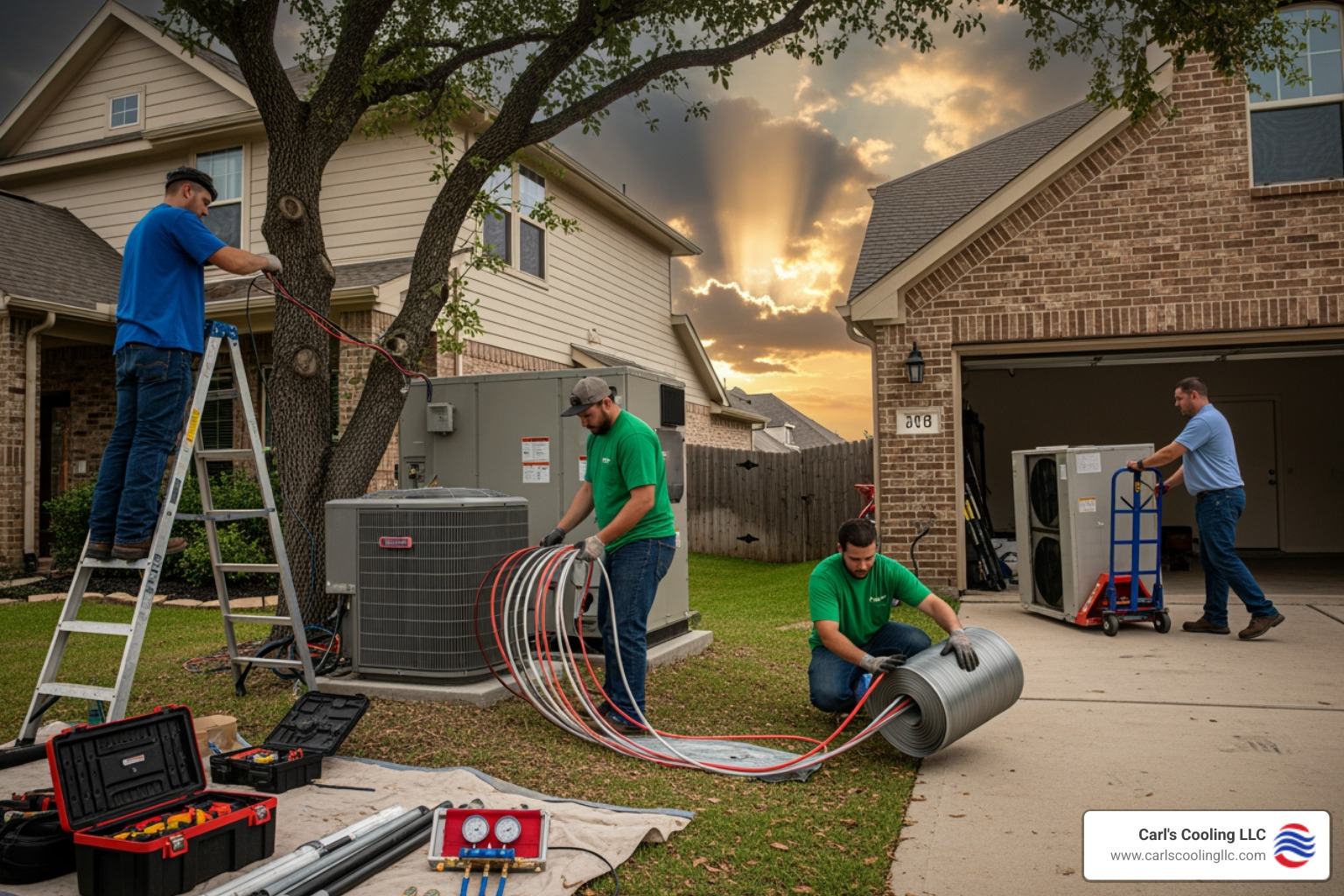Getting a new AC system installed is a big step for any homeowner in Magnolia. During the hotter months, the way your system performs can directly affect your comfort and utility costs. But even when choosing high-quality equipment, the installation itself matters just as much. If it’s done the wrong way, problems can start popping up sooner than expected. That’s why avoiding common installation mistakes is one of the most important parts of setting your home up for reliable cooling over the long term.
Sometimes, people don’t think much about installation until something goes wrong. The house is too warm, the airflow feels weak, or energy bills start climbing. Many of these issues tie back to small errors that happen during the installation process. Whether you’ve just built a new home or you're replacing an outdated unit, the steps taken during the setup can prevent stress down the line. Magnolia’s unique mix of home layouts and weather patterns calls for careful planning when putting in a new AC system.
Incorrect Sizing Of AC Units
One of the most common problems during AC installation in Magnolia is getting the size of the unit wrong. AC systems are not one-size-fits-all. If the unit is too small, it
won’t cool your home evenly or quickly enough. It’ll run longer, wear out faster, and still might not keep up on the hottest days. On the other hand, an oversized unit might sound like a better option, but it’ll cycle on and off too often. That short cycling creates humidity problems and puts unnecessary stress on the entire system.
Homeowners may be tempted to base their decisions on the size of their old system or make rough estimates using square footage. This is a mistake. Several factors come into play when determining what size unit your home needs:
1. Number of windows and their direction
2. Level of insulation in walls and ceilings
3. Room arrangement and ceiling height
4. Overall air leakage, including door and window seals
5. Daily occupancy and usage patterns
An experienced HVAC team will take time to assess your home's specific needs instead of recommending a generic size. Magnolia homes come in varying shapes and structures, from custom builds to traditional layouts. That’s why skipping a proper load calculation can create cooling issues that show up immediately or months down the road.
Poor Installation Of Ductwork
Another area that often causes trouble is improper ductwork installation. Even with a properly sized air conditioner, bad ductwork can lead to rooms that are constantly too warm, airflow that feels weak, or energy usage that climbs month after month. These problems tend to grow over time but often start during the first setup.
Here are some common ductwork mistakes that happen in many homes across Magnolia:
1. Loose or unsealed joints that let cooled air escape into unconditioned spaces
2. Ducts that are poorly sized, restricting the flow of air and lowering system efficiency
3. Runs that are too long or packed with too many bends, dropping static pressure
4. Ducts installed in hot attics or crawl spaces without proper insulation, causing temperature loss
Each of these issues can reduce the performance of the AC system by a noticeable amount. Even small air leaks can increase your system’s workload and shorten its lifespan. It also places added stress on the blower motor, forcing it to work harder than needed to push cooled air through compromised ducting.
Correct duct layout is not just about where the ducts go, but how they’re put together. Connections must be tight and sealed well, with ducts wrapped in the right type of insulation. Using quality materials and double-checking the fittings can make the difference between a system that runs as intended and one that constantly struggles.
In one Magnolia remodel, a homeowner replaced a working AC unit because the rooms always felt uneven in temperature. After the new system was installed, the issue remained. It turned out that the problem was never the AC. It was leaking ducts hidden behind the ceiling. Once repaired, the temperature balanced out and the system worked better without pushing harder. This is why a quality duct inspection should be part of every proper AC installation.
Inadequate Refrigerant Levels
Refrigerant might seem like a minor detail, but incorrect levels during AC installation can create serious performance problems. Too much or too little refrigerant affects how the system transfers heat. If the charge is off, the AC may struggle to cool your home during the summer, even if everything else seems right.
Low refrigerant can lead to:
1. Reduced cooling capability, especially during peak daytime hours
2. Ice forming on coils, which can damage components over time
3. Higher energy usage as the unit runs longer to try to meet the thermostat setting
Overcharging isn't any better. It increases pressure inside the system, placing added strain on the compressor. That often leads to early failure. Symptoms can include warm air still blowing, strange sounds, or increased humidity indoors. None of these are things you want to deal with in the middle of a hot Magnolia summer.
Refrigerant levels must match the manufacturer's exact specifications. That means it's not a job for rough guesses or assumptions. Our professionals use specific tools to measure refrigerant pressure and ensure it aligns with the system's needs. That accuracy makes a big difference when trying to push out consistent, cool air across all rooms in your home.
Improper Positioning Of The AC Unit
The placement of an AC unit has a direct impact on both its performance and lifespan. When the outdoor condenser sits in the wrong spot, it can suffer from restricted airflow, exposure to elements, or constant blockages. These unit placement choices matter more than most homeowners realize.
Common placement mistakes include:
1. Installing the unit too close to a wall or fence, limiting airflow around the condenser
2. Placing the unit near trees or bushes, which drops debris into the fan and clogs airflow
3. Setting it in direct sunlight without any shade, especially on the west side of the house
4. Installing it on an unlevel surface, leading to internal damage over time from shifting parts
Each mistake chips away at the system's ability to run efficiently. For instance, when the unit is installed in constant sunlight without airflow, it has to work harder to expel heat. That results in higher running times, more energy use, and a shorter system life.
In Magnolia, where summer heat lingers for months, these issues get worse with every passing year. Homeowners who’ve had their AC unit placed right next to landscaping or in tight corners are likely to run into airflow and clogging issues faster than expected. A poorly placed AC system means good equipment gets wasted due to environmental wear and tear.
The layout of your home, sun exposure, clearance space, and plant growth all play into where to place your condenser. Taking time to plan positioning helps ensure each part of the cooling cycle works without restriction.
Making AC Installation Go Right In Magnolia
Poor installation choices often cause problems that take weeks or months to notice. One room might always feel warmer than others. Your AC could break down sooner than expected. Or you might hear it turning on and off far too often. These are not flukes. They usually trace back to preventable installation mistakes. That’s why working with trained professionals matters when setting up a new system.
Every part of the process holds weight. From sizing and ductwork to refrigerant levels and outdoor placement, it's all connected. When just one piece is off, your comfort, energy use, and system lifespan take the hit. Proper AC installation in Magnolia is not about getting the job done fast. It’s about getting the job done right with long-term results in mind.
By avoiding the most common installation mistakes, homeowners in Magnolia can feel a difference right away. Cooling is faster, airflow improves, and systems last longer. You can move past the stress of constant repairs or high bills that come from a poor setup. Taking those extra steps from the start is the best way to avoid headaches later.
Enhance your home's comfort and efficiency by trusting our professionals to handle your AC installation in Magnolia, ensuring dependable cooling and a seamless setup tailored to your home's needs. For a quick estimate or to book a service visit, please contact us today and let Carl's Quality Cooling and Heating LLC take care of the installation process with precision and care.






